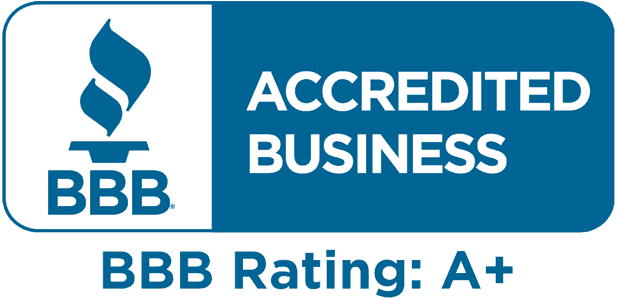Medicare Store Locations
Medicare in Utah
If you’re looking into your Medicare options in Utah, choose to work with a local representative from The Medicare Store. It’s easy, it costs you nothing, and you can compare options to make sure you’re on the best plan for you. Ask us your questions. We’re here to help.

You're local. We're local.
Get Help with Medicare in Utah
It’s your right to have a local agent who will be your personal consultant for Medicare in Utah.
You deserve an agent with the training and experience needed to avoid mistakes that could cost you. Choose an Agent from The Medicare Store who knows how Medicare in Utah works.
Medicare in Utah
What real people say about us
Schedule online now
UTAH Specific Medicare Consultation
PEOPLE WITH MEDICARE IN utah
Of the nearly 430,000 people enrolled in Medicare in Utah in 2021, approximately 44% had Medicare Advantage, which means they have coverage from a private insurer who may offer additional benefits for Medicare in Utah beyond what Original Medicare covers.
In most states, including Utah, there are certain requirements that residents must meet in order to be eligible for Medicare coverage in Utah. How do you know if you are eligible to get Medicare in Utah? Who can be a Medicare beneficiary in Utah?
Beneficiaries
A Medicare beneficiary is someone who is eligible for Medicare and enrolled in Medicare Part A and/or B. Medicare beneficiaries are covered for some medical expenses, but not all, and may be required to pay coinsurance and copays for some services.
In general, a doctor who accepts Medicare will bill Medicare at the pre-approved rate and the beneficiary will not be charged for expenses that are covered by their plan.
To qualify as a Medicare beneficiary in Utah, you must meet the following requirements:
- be a U.S. citizen or resident for five years or more
- be 65 years of age or older
You may also be eligible for Medicare if you are under 65 and have received Social Security Disability Insurance (SSDI) for 24 months or have End-Stage Renal Disease (ESRD).
MEDICARE OPTIONS IN Utah
Your Medicare options in Utah depend on several factors, such as whether you want to stick with basic coverage or purchase supplemental insurance from a private insurer. You’ll also need to decide if you want separate prescription drug coverage, since this isn’t covered by standard Medicare policies. Let’s look at the four major options (which apply directly to Medicare in Utah), Parts A through D.
Medicare Part A and B
The core components of Original Medicare are Parts A and B. Part A covers care at a hospital, nursing home, or hospice. Part B covers doctor’s visits and preventive medicine.
For most people, Part A does not have a premium, as long as you’ve worked and paid taxes into Medicare for at least 40 quarters. You may have to pay a premium if you’ve worked for less than 30 quarters, in which case the premium is approximately $437 per month. If you’ve worked between 30-39 quarters, the premium is approximately $240 per month.
Part A has a deductible of approximately $1,364 per year, so you’ll have to pay that amount out-of-pocket before Medicare kicks in. After that, you’ll be covered for up to 60 days of care. If you’re in the hospital for longer 60 days, you’ll pay approximately $341 in coinsurance for days 61-90, and all costs beyond that once you’ve used up your “lifetime reserve days.”
Part B has a standard premium of approximately $135.50 per month, although the amount can vary based on your income. The deductible is approximately $185 per year. In addition to the annual deductible, you pay 20% of the costs for doctor’s visits and other outpatient care. Original Medicare covers the other 80 percent.
Part C
If you want more coverage than Original Medicare (and leaving yourself open to paying 20% of your medical bills is a concern), then you can choose a Medicare Advantage plan from a private insurer. Medicare Advantage plans are referred to as Medicare Part C. These plans are required to offer the same minimum benefits as Original Medicare, but may also include additional benefits, such as dental or vision care, or prescription drug coverage.
Since Medicare Advantage plans vary from insurer to insurer, you’ll want to do a cost comparison and research the best plan for you for Medicare in Utah. You’ll be responsible to pay for your monthly Part B premium in addition to the premium for your Medicare Advantage plan. Some Advantage plans have $0 premiums, but you may end up with higher deductibles and copays. You may also pay more to see a doctor outside your network. If you want to keep seeing your current doctor, make sure that they’re in your Medicare Advantage plan’s network.
You can use online tools like this one to search for Medicare Advantage plans in Utah with or without prescription drug coverage. But, most people prefer to have some explain the options. You can have a representative from The Medicare Store do the work for you and show you plans.
Medicare Supplement Insurance
An alternative to Medicare Advantage is Medicare Supplement Insurance, or Medigap. Instead of paying a private insurer to manage your Medicare package, you’ll purchase a plan to cover the “gaps” in your Medicare costs. For example, you can choose a plan that covers all of the copays and coinsurance costs you would incur on Original Medicare.
These plans are standardized from state to state, so they’ll be the same regardless of which insurer you choose, and you won’t be restricted to seeing in-network doctors.
However, coverage for Medigap plans can vary widely. You can choose a comprehensive plan with high premiums and few out-of-pocket costs, or a plan with a low monthly premium that covers fewer expenses. The best plan for you will depend on how often you expect to see a doctor and whether your doctor charges “excess charges” beyond the approved rates.
You can use this guide to compare Medigap premiums in Utah. A representative from The Medicare Store can also tell you all of the current rates for Medicare in Utah.
Medicare Part D
Finally, there’s Medicare Part D, which offers prescription drug coverage. This plan is optional, and you get it from a private insurer. As of 2019, there are 10 insurers for Medicare in Utah that offer 26 different Part D plans. Premiums range from approximately $16.20 to $97.40 per month.
As with Part C and Medigap, you’ll have to do some research, or have someone from The Medicare Store do the research for you, to find out which plan is the best fit for your prescription drug needs. Not all plans cover all prescriptions. So when you’re looking at Medicare in Utah, make sure the plan you choose covers from the drugs that you take or offers comparable alternatives.
You can purchase prescription drug coverage as part of a Medicare Advantage plan, or you can buy standalone coverage to supplement your Original Medicare plan. You can sign up when you first enroll in Medicare, or during the Annual Enrollment Period from October 15 – December 7.
You have more opportunities to switch prescription drug plans than you do other Medicare plans, and your insurer must notify you if they stop covering your prescribed drugs.
APPLYING FOR MEDICARE IN Utah
There are several ways to get Medicare coverage in Utah. Regardless of which plan you’re applying for, it’s important to apply during your initial enrollment period to get the best coverage and most affordable premium.
You can apply for Original Medicare online via Social Security .
Enrollment Periods
For most people, the best time to enroll in Medicare is just before or after your 65th birthday. If you’re already receiving Social Security retirement benefits when you turn 65, then you should automatically be enrolled in Medicare Part A.
If you’re not enrolled in Medicare Part A, you’ll have 7 months to apply for Parts A and B, beginning 3 months before your birthday and ending three months after it. If you don’t apply during this window, you can apply during the open enrollment period from January 1st to March 31st, but your Part B premium will increase by 10% for each year you delay.
One exception to when you should apply for Part B is if you or your spouse are still working and have insurance through your employer or your spouse’s employer. If that’s the case, you can still choose to enroll in Part A (since there’s no premium, it will provide you additional insurance at no extra cost). Once you stop working or no longer receive coverage through an employer, you’ll have an 8-month to enroll in Parts A and B..
When you are 65 years old and have signed up for Medicare Part B, you have six months to purchase Medicare Supplement Insurance (Medigap) if you choose. It’s important to sign up during your initial enrollment period – otherwise, you’ll be subject to medical underwriting. Medical underwriting means your insurance can decline you or charge you a higher premium based on your health status. The initial enrollment period is the only time they are required by law to insure you.
You’ll also be able to sign up for a Medicare Advantage plan and Prescription Drug plan during your initial enrollment period when you turn 65 or lose employer coverage.
Getting Assistance
We can help you.
We do this Medicare stuff for a living, and we help people with Medicare in Utah every day. It costs you nothing to have a licensed, highly trained, unbiased Agent help you find the right plan for you. We love hearing from other Utah locals and we’re here to help. You can reach out to us here.
Also, if this sounds like a lot of information and you’re feeling a bit overwhelmed, remember that the Department of Business and Industry publishes a guide to supplement insurance each year to help you compare premiums. Of course, we can enroll you in the plan of your choice.
If you’re a low-income resident, then you may also be eligible for a Medicare Savings Program through the state of Utah to help you pay your premium for Medicare in Utah.
Start doing your research now so you’ll be well informed of your options. You want to choose the Medicare plan that’s right for you. Be sure to apply as soon as you become eligible (three months before you turn 65) to avoid any gaps in your coverage.
specializing in Utah Medicare
Are you ready for us to look at your specific situation, answer questions, and make local recommendations?


